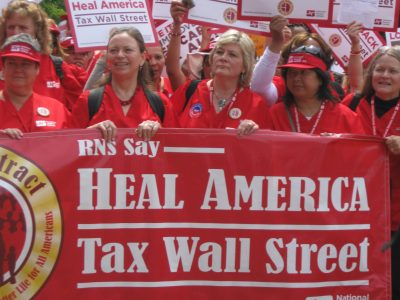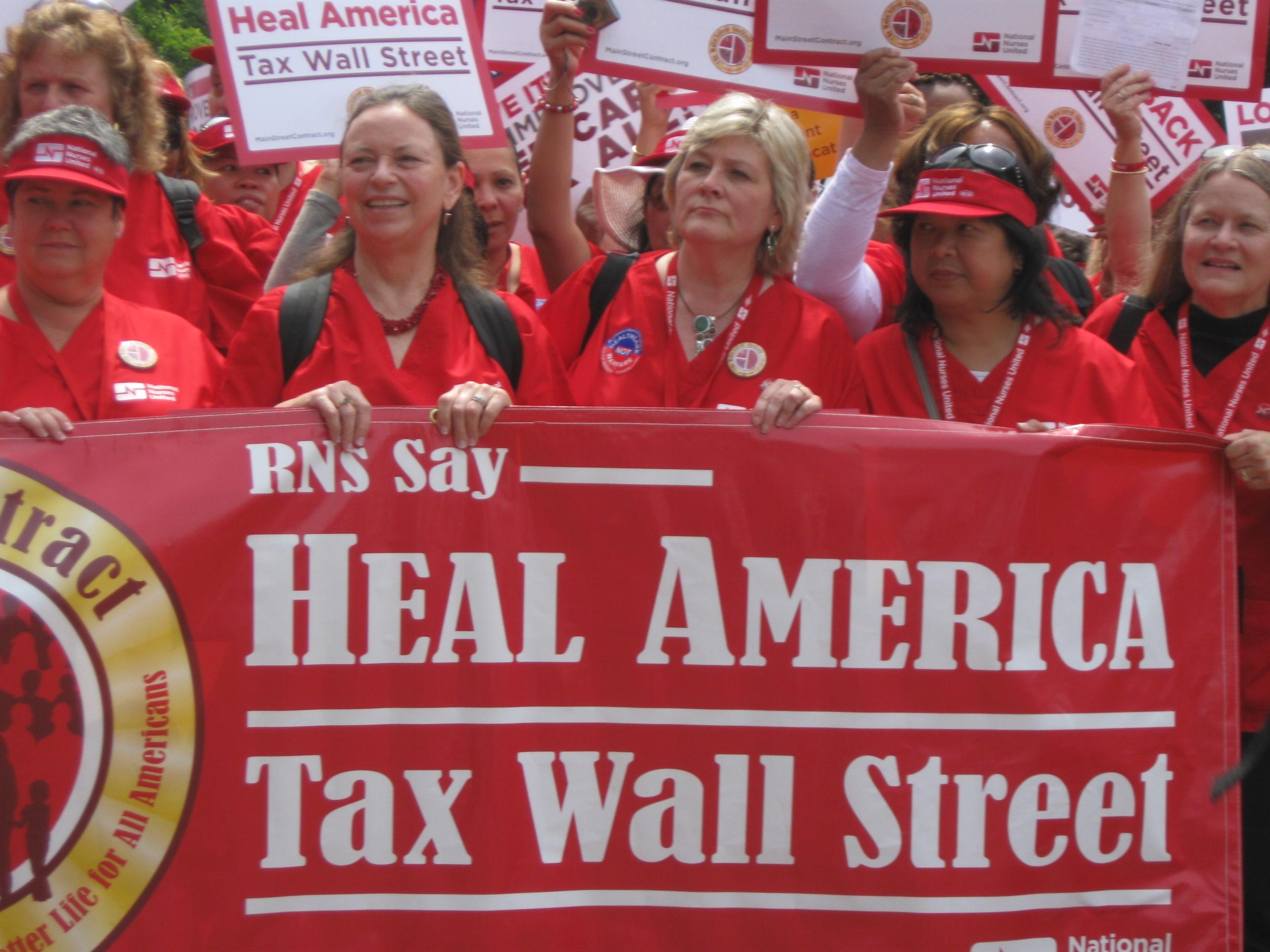A swarm of around a thousand nurses in scarlet scrubs descended on the U.S. Chamber of Commerce in downtown Washington today, calling for a new national agenda funded by taxing Wall Street.

Nurses display a banner calling for a tax on Wall Street. Photo by Sarah Anderson
At the door to the Chamber’s headquarters, they were greeted by tuxedoed gentlemen with sashes bearing the names of Wall Street firms. They held out buckets for cash donations (I didn’t see much actual money going in).
The rally, organized by National Nurses United, was part of a series of activities to promote what they are calling a “Main Street Contract” to increase spending on jobs, healthcare, education, and other urgent needs.
At a press conference on June 6, NNU Executive Director Rose Ann DeMoro explained that they are calling on Congress to enact a tax on financial transactions as a way to pay for the contract.
Such taxes are designed to generate massive revenue while also discouraging the kind of short-term purely speculative financial activity that serves no social purpose. The way they work is by placing a very small fee (0.25% or less) on each trade of stocks, derivatives, foreign exchange, and other financial instruments.
DeMoro said that NNU members along with other unions and allies plan to demonstrate June 22 on Wall Street as part of an international day of action on financial transactions taxes.
That date was selected because it falls on the eve of a European Council meeting in Brussels. Progress on this issue has been moving fast in Europe and there are high hopes that European countries, at least those in the eurozone, will reach agreement soon to coordinate the adoption of financial transactions taxes. Leaders of Germany and France have been the biggest champions, and there are reports this week that their two governments are coming closer to consensus on the technicalities (instruments covered and at what rates).
This could put healthy pressure on U.S. policymakers to open their minds to an idea that progressives have been pushing for decades.
